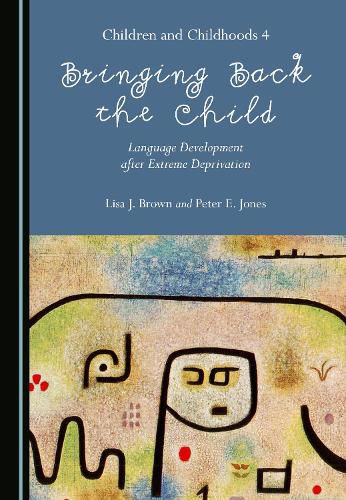Readings Newsletter
Become a Readings Member to make your shopping experience even easier.
Sign in or sign up for free!
You’re not far away from qualifying for FREE standard shipping within Australia
You’ve qualified for FREE standard shipping within Australia
The cart is loading…






This book presents a unique, multi-faceted investigation of the language abilities of three older adopted Romanian orphans who experienced extreme deprivation in their early years. Serena, Gabrielle and Ingrid were aged 7 years, 6 years and nearly 4 years, respectively, when rescued by UK families from the orphanages where they were placed at or around their birth. In these institutions, an absence of social and psychological stimulation, nutritious food and physical exercise had left them completely dependent on care staff for their most basic needs, and effectively without language. The book presents the findings of a two year research study of the competencies in language, nonverbal cognition and social and communicative behaviour which the girls acquired over several years in their new homes, and discusses the implications of their linguistic progress for the Critical Period Hypothesis and modularity. Detailed qualitative analysis of the girls’ language in everyday conversation is combined with quantitative analysis of developmental progress and structural complexity and with the results of standardized tests. The authors argue that the girls’ progress in language defies the predictions of current Critical Period models and offers no evidence of modular dissociations between language and other cognitive domains. These findings are considered in relation to other research on language development in internationally adopted children.
$9.00 standard shipping within Australia
FREE standard shipping within Australia for orders over $100.00
Express & International shipping calculated at checkout
This book presents a unique, multi-faceted investigation of the language abilities of three older adopted Romanian orphans who experienced extreme deprivation in their early years. Serena, Gabrielle and Ingrid were aged 7 years, 6 years and nearly 4 years, respectively, when rescued by UK families from the orphanages where they were placed at or around their birth. In these institutions, an absence of social and psychological stimulation, nutritious food and physical exercise had left them completely dependent on care staff for their most basic needs, and effectively without language. The book presents the findings of a two year research study of the competencies in language, nonverbal cognition and social and communicative behaviour which the girls acquired over several years in their new homes, and discusses the implications of their linguistic progress for the Critical Period Hypothesis and modularity. Detailed qualitative analysis of the girls’ language in everyday conversation is combined with quantitative analysis of developmental progress and structural complexity and with the results of standardized tests. The authors argue that the girls’ progress in language defies the predictions of current Critical Period models and offers no evidence of modular dissociations between language and other cognitive domains. These findings are considered in relation to other research on language development in internationally adopted children.